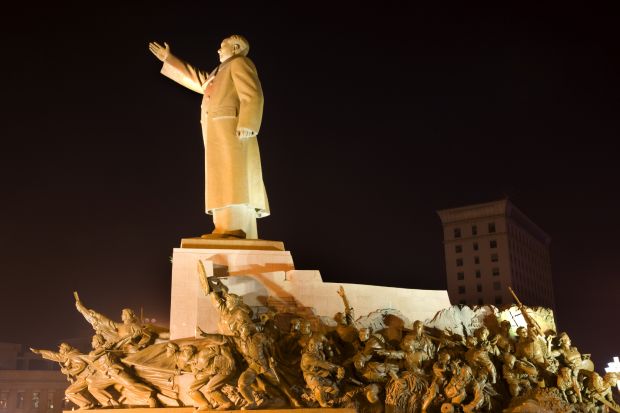All Nobel prizes are special, but this one particularly so. Youyou Tu, an expert in Chinese traditional medicine who developed a breakthrough treatment for malaria, today became the first Chinese scientist to win the award for research carried out in China itself. Up until now, Chinese scholars had all conducted their award-winning research after leaving the country, usually for the West.
China’s failure to win a home-grown Nobel prize has long been a source of concern, even embarrassment, domestically. Often blamed is China’s school system, which many in the country believe destroys creativity through a numbing combination of rote learning and extreme pressure testing.
“No one, after 12 years of Chinese education, has any chance to receive a Nobel prize, even if he or she goes to Harvard, Yale, Oxford or Cambridge for college,” blogged the Peking University professor Zheng Yefu in 2013. “Out of the one billion people who have been educated in Mainland China since 1949, there has been no Nobel prizewinner,” argued Professor Zheng, who in the same year published a popular book called The Pathology of Chinese Education. “This forcefully testifies [to] the power of education in destroying creativity on behalf of the [Chinese] society.”
His point about China having no Nobel prizewinners isn’t strictly true: Liu Xiaobo, currently languishing in prison for daring to call for democratic elections and freedom of expression, won the Prize for Peace in 2010 (he was represented by an empty chair at the prize ceremony). The Dalai Lama was also awarded the Peace Prize in 1989. Writer Mo Yan won the Literature Prize in 2012.
But the point stands – true excellence in science was seen as elusive. Two years ago, Cong Cao, an associate professor and reader at the School of Contemporary Chinese Studies, University of Nottingham, predicted that the “Nobel pursuit will continue to vex the Chinese for many years to come”.
The wait is now over. What makes Professor Tu’s accomplishment even more extraordinary is that her breakthroughs came during the Cultural Revolution, China’s episode of political madness that saw universities and schools shut for long periods during the late 1960s and 1970s as rival bands of student radicals fought over who were the most revolutionary.
Professor Tu later recalled that during this chaotic period there was no way to perform clinical trials on her emerging anti-malarial drug, so she and her colleagues volunteered to be the first to take the compound to see if it was safe. Given that the work took place against a background of extreme anti-intellectualism, getting a Nobel prize for research during the Cultural Revolution is rather like winning the Olympic 100m final in hobnail boots.
But her extraordinary work does not necessarily mean that Chinese science has emphatically come of age. For a start, the prize is for research done decades ago. It is not the fruit of the huge sums of money poured into Chinese science since the turn of the century. There are also still concerns that Chinese academia has a “toxic” culture of favouritism and fraud, while a 2010 survey found that more than nine in 10 Chinese doctoral candidates stayed in the US after receiving their degrees. But hopefully Professor Tu’s prize will give young Chinese researchers hope that they can make lifesaving breakthroughs without leaving for the West.
Register to continue
Why register?
- Registration is free and only takes a moment
- Once registered, you can read 3 articles a month
- Sign up for our newsletter
Subscribe
Or subscribe for unlimited access to:
- Unlimited access to news, views, insights & reviews
- Digital editions
- Digital access to THE’s university and college rankings analysis
Already registered or a current subscriber? Login








